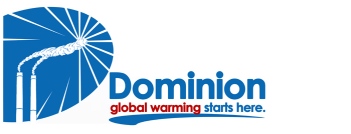 No, you can’t always get what you want.
No, you can’t always get what you want.
You can’t always get what you want.
You can’t always get what you want.
But if you try sometime you find,
You get what Dominion Power wants.
–With apologies to the Rolling Stones
I guess there’s a reason I never made it as a songwriter. That last line is a disaster. But that, in a nutshell, is what happened to SB 1349, known as the rate-freeze bill, the ratepayer rip-off, or the Dominion bill, depending on whether you were pro, con, or still trying to figure it out.
The bill began and ended as a way for Dominion Virginia Power to shield excess profits from the possibility of regulators ordering refunds to customers. Along the way, Appalachian Power jumped on board, even though its president had already admitted the company had been earning more than it should.
When we last looked, SB 1349 was undergoing radical rewriting on the floor of the Senate, in real time. Conflicting amendments were being passed around. Outside the chamber, lawmakers from both parties were huddled in hallways with Dominion lobbyists. The coal caucus had already tacked on language making it harder to close coal-fired power plants. Now the Governor, progressive leaders and clean energy supporters were pushing amendments guaranteeing more solar and energy efficiency programs.
To get a sense of how impossible it was for the rank and file to follow, check out the bill history with its amendments offered and rejected, and the readings of the amendments waived.
With cameras rolling and the clock ticking, senators made speeches about provisions other people told them were now in the bill, but without anyone having the time to read the language they were expected to vote on. That being normal, they voted on the strength of promises made and assurances given.
With Dominion Power insisting on passage, the result was never in real doubt. Few legislators want to cross the most powerful force in Virginia politics, and the source of so much campaign cash, perks, and donations to local charities. But they needed to hear those promises made and assurances given; otherwise, what would they tell their constituents, when newspapers across the state had been blasting this bill?
The promises made and assurances given also quieted the environmentalists who had led the opposition. Consumers, we were told, would now see investments in solar and energy efficiency that would bring long-term savings, energy diversity and greater price stability, as well as lower pollution and new jobs. The bill would contain firm commitments and produce meaningful investments in energy efficiency and solar power.
The Senate passed the bill, and then finally everyone read what had been voted on. Yes, Dominion had gotten what it wanted, but then it had gotten . . . even more of what it wanted!
The bill contains a solar provision that smooths the way for utilities to develop or buy up to 500 megawatts of solar power, using Virginia suppliers. But it doesn’t require any minimum solar investment or contain a deadline for getting that solar power on the grid.
As for efficiency, SB 1349 does now contain a provision requiring utilities to create “pilot programs” for energy assistance and weatherization for low-income, elderly and disabled customers, but it doesn’t say how big a program has to be or how much money must be spent. A “pilot program,” by definition, is small and experimental. It is a baby step, when we were expecting adult strides.
While clean energy advocates were still trying to figure out what happened to the promise of firm commitments and deadlines on solar power, SB 1349 blew through the House.
In short, the final bill language now on the Governor’s desk gives Dominion the authority, but not the obligation, to make clean energy investments.
Virginia law gives our governor an option that most states don’t offer: rather than sign it or veto a bill outright, he can amend it and send it back to the legislature for a final vote. That makes Governor McAuliffe the one person who can still salvage something from this miserable bill. He can put in the solar numbers and dates that went missing-or raise them further-and put hard targets into the efficiency programs. Doing so would finally put McAuliffe on the path to creating all those clean energy jobs he campaigned on.
Dominion will still get what it wants, but if McAuliffe will try, we might get what we need.



![Saturday News: “Trump’s latest tariff TACO probably won’t make your life more affordable”; “The Epstein Email Cache: 2,300 Messages, Many of Which Mention Trump”; “[MTG] questions if Trump is still the ‘America First’ president”; “Jim Ryan tells all: ‘What did the Governor know, when did he know it?’”](https://bluevirginia.us/wp-content/uploads/2025/11/montage1115.jpg)
![Wednesday News: “The Grand Opening of an American Concentration Camp”; Trump Threatens to Arrest Mamdani; “Poorest Americans Would Be Hurt By Trump’s Big Bill”; [VA] GOP nominees share stage, but not unity”; “Hoos your daddy, Virginia?” (Not Youngkin)](https://bluevirginia.us/wp-content/uploads/2025/07/montage0702.jpg)
![VA DEQ: “pollution from data centers currently makes up a very small but growing percentage of the [NoVA] region’s most harmful air emissions, including CO, NOx and PM2.5”](https://bluevirginia.us/wp-content/uploads/2026/01/noxdatacenters.jpg)











